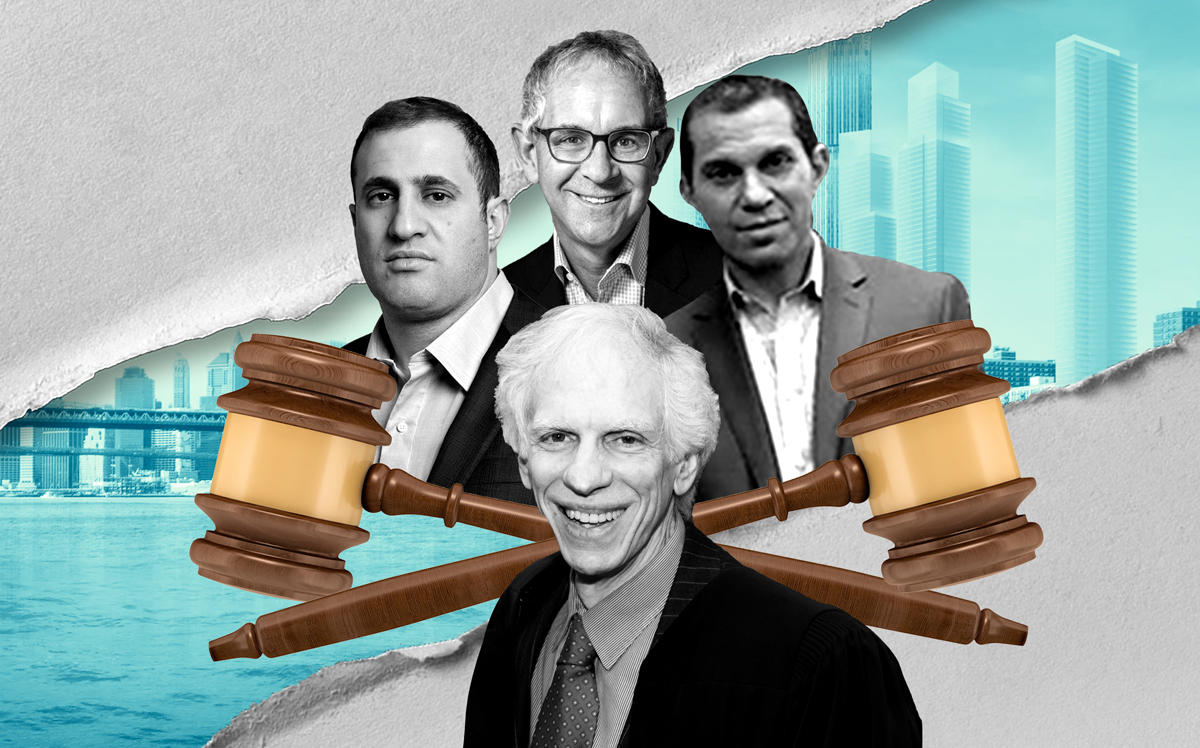Trending
Judge deals another blow to Two Bridges towers
Fourth recent court decision negating city approvals that favored real estate projects

In another setback for the would-be developers of four towers in Manhattan’s Two Bridges neighborhood, a judge has ruled against them in the second of three lawsuits facing the development.
The latest decision, on a case brought by a group of residents and local organizations last March, was delivered by the same Supreme Court judge who ruled last summer that the three separate projects must go through the city’s exhaustive land-use review.
u201dRead
The de Blasio administration, siding with the developers, had argued that because the towers do not need a special permit to be built in the large-scale residential district, certain findings about their environmental impact were not needed. But the city’s zoning regulation says if modifications to the district are made by special permit “or otherwise,” fast-track approval is not permitted, Judge Arthur Engoron ruled.
“If this court were to endorse the city respondents’ interpretation, it would be rendering the language ‘by special permit or otherwise’ completely meaningless,” Engoron wrote in nullifying the project’s approvals.
The three projects, which would have 2,775 rental units across four towers at three addresses, would range from 63 to 80 stories. JDS Development, L+M Development, CIM Group and Starrett Corporation would construct the buildings at 247 Cherry Street, 260 South Street and 259 Clinton Street.
The towers would more than triple the number of residential units in the area. Local organizations argued that it would accelerate gentrification.
Engoron had ruled against the developments last summer as well in a lawsuit led by the City Council and Gale Brewer, the Manhattan borough president. That decision is being appealed, and a third lawsuit is still pending.
Local activists hailed this week’s decision. “This is an amazing victory and it comes on the tails of victories across the city,” Tony Quey Lin, a plaintiff in the lawsuit who lives on the same block as the proposed towers, said in a statement. “The people are taking the city to court, and we are winning.”
A judge last year nullified the City Council’s approval of a major Inwood rezoning, and this month a judge ruled the city should not have allowed the top 20 stories of an apartment tower at 200 Amsterdam Avenue to be built. Both decisions are being appealed.
The developers in Two Bridges want to avoid the city’s Uniform Land Use Review Procedure, which entails City Council approval — effectively allowing the local representative, Margaret Chin, to kill their projects unless they met her terms, which would include drastic height reductions. Chin has said the towers would gentrify the neighborhood and, despite adding thousands of dwellings, would push residents out.
The de Blasio administration and the developers argue that adding supply would ease the housing crunch and that the zoning in Two Bridges was written to allow large-scale development.
“We of course disagree with the court’s ruling, as these projects were lawfully approved, met all legal requirements, and are in compliance with zoning that’s been in place for more than 30 years,” a spokesperson for the developers said.
The projects were proposed after years of community consultation and environmental analysis, and would include investment in a nearby subway station, NYCHA complex and public parks, said the spokesperson, adding that the decision would be appealed.
The city’s Law Department is also evaluating next steps, including whether to appeal. “We are currently in appeals court on another challenge to this project brought by the City Council,” a spokesperson said. “We’re confident the court will recognize that the city fully complied with the zoning law and will allow this important project to move forward.”
But for now, local organizations are celebrating. “At the start of this fight, Council Member Chin and Mayor de Blasio told us it was a done deal. We could not be more excited to prove them wrong,” said Zishun Ning, a member of Lower East Side Organized Neighbors, one of the organizations involved in the lawsuit.
When the projects were proposed more than three years ago, Chin indicated a willingness to negotiate with the developers, but some of her constituents wanted her to oppose the projects in their entirety.




